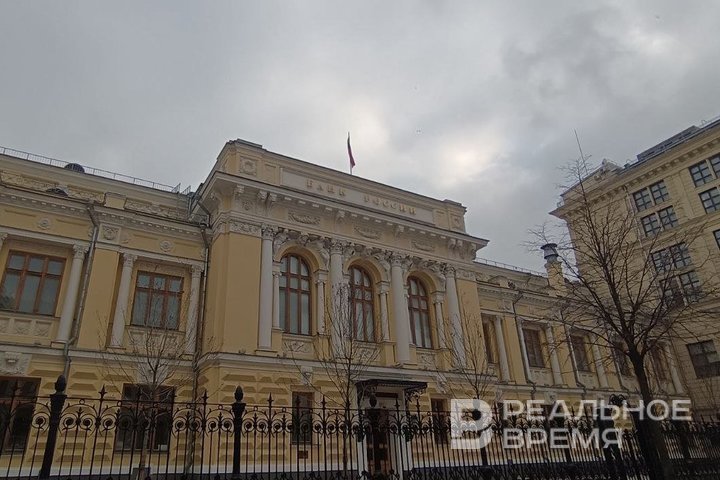How Tatarstan will support developers amid falling sales
Developers’ profit has decreased by two to three times without soft mortgage

A sharp drop in sales of new buildings in Tatarstan was discussed at a Saturday meeting with the rais of the Republic of Tatarstan on 6 September. As market participants forecast, in July-August, the turnover of many development companies decreased by almost half. In order to avoid bankruptcies among developers, the regional authorities intend to develop a number of measures to support the industry, which will help to survive the crisis. Read the details in the material of Realnoe Vremya.
A decline in demand may lead to overstocking of the market
The topic of a sharp drop in housing sales in Tatarstan became one of the key topics at Saturday's meeting with the rais of Tatarstan. In July, the volume of new buildings sold in the republic decreased almost three times compared to June and amounted to 7.4 billion rubles. This is a general trend in Russia, which has emerged with the abolition of mass soft mortgages, an increase in the Central Bank's key rate and a rise in real estate prices.
At the meeting in the government house of the Republic of Tatarstan, possible measures of state support for the industry were discussed in order to avoid serious problems for developers. In particular, they talked about the national project Infrastructure For Life. Rustam Minnikhanov heads the commission of the same name in the State Council of Russia.

Since July, the market for new buildings has been experiencing a serious downturn — mortgage transactions in total lending have halved, and mortgage issuance has tripled. As a result, the flow of apartment buyers in the primary market, especially for investment purposes, has dried up to a minimum.
As for potential bankruptcies, Tatarstan construction companies, according to Nail Galeev, CEO of the group, have different financial stability, different products, which have different financial models: “You can't find the average. But if the real estate market does not have available sales tools, then sooner or later there will be one final for everyone.” .
Iskander Yusupov, the commercial director of Unistroy, also does not expect mass bankruptcies in the construction industry in the near future: “Firstly, the very structure of financing construction projects has changed. Now banks play the main role interested in maintaining market stability, which continue to lend to developers. This reduces the risks of large-scale bankruptcies. Secondly, despite the temporary difficulties, the market as a whole is showing signs of recovery. This suggests that the current problems are rather short-term in nature, and the industry is able to overcome them without a systemic crisis.”
At the same time, according to him, of course, individual cases of bankruptcy cannot be excluded, especially where companies already had serious difficulties. However, he is convinced that “the construction industry is adapting to new conditions, and with the support of financial institutions is able to go through the current drawdown”. In terms of state support for the industry, the developer considers the following measures effective:

Now, according to him, developers are really facing a difficult situation due to the decline in sales in the market. However, they demonstrate flexibility and resourcefulness by offering new forms of sales to attract buyers who cannot take advantage of, for example, a family mortgage. Installments, trade-in and other tools help to compensate for losses from a decrease in demand, he explained.
“If I didn't earn, it doesn't mean anything — the main thing is to keep the team”
Perhaps the government support measures under consideration will partially help offset the losses of developers, for example, in terms of creating infrastructure for large residential complexes. However, so far they do not cause much optimism among developers.
“Globally, market stabilisation is expected as the Central Bank effectively fights inflation and, against this background, reduces the key rate, which will lead to lower mortgage lending rates and a recovery in demand for real estate. Up to this point, it is important to consider targeted state mortgage support programs, for example, for young families, social workers, teachers, civil servants," Emil Khusnutdinov believes.
The decline in housing sales is clearly demonstrated by the data of the Federal Register. In June, 8,500 mortgage transactions were executed in Tatarstan against 9,000 in June (there are no data for August yet). “We see that the drop in sales is quite deep — 2-3 times for all developers. Moreover, it is different: someone really fell very, very hard. Someone remained within the framework of the average annual indicators," said Anastasia Gizatova, the director general of the Schastlivy Dom real estate agency. At the same time, the expert also does not yet see the prerequisites for the bankruptcy of developers.

“This is an element of blackmail — either we go bankrupt or you subsidise us”
In turn, the head of the Quartet real estate agency, Rustem Safin, attributes the decline in the market of new buildings to various factors: “First of all, of course, this is due to changes in government schedules. The fact that an IT mortgage has appeared, in fact, does not make the difference, because most of those who work in this field in Tatarstan are not on this list yet. I know that banks and developers have a long waiting list of those activists who have booked apartments in different residential complexes, but cannot leave under the new conditions.”

Therefore, there is still a pent-up demand in this segment, the expert noted. The range of borrowers on family mortgages has also significantly narrowed. In this situation, developers offer their own home purchase programmes to get out of the situation. Therefore, the financial collapse is unlikely to overtake any of them, the source believes.
The main reason for the cancellation of soft mortgages is its reverse effect, it was the program that inflated the cost per square metre, although it also served as a driver for the development of the housing market. “Now the government is offering developers — do you now want to co-finance at your own expense the margin that you have earned in some way to reduce the cost of apartments? But, in principle, even if tomorrow all apartments will decrease in price by a million, it will not make the difference. This is due to that the new resolution on family and IT mortgages does not allow for a loan of more than 6 million rubles, and we need a program so that the loan amount is significantly higher than this limit at a preferential rate," the speaker explained.
Recession will be followed by a rise — already this autumn
Earlier, the head of the Central Bank, Elvira Nabiullina, called for the June surge in demand for housing loans to be considered unproven. The flurry of applications for this month came only because many borrowers sought to “jump into the last carriage” before completing a massive preferential mortgage.
An increase in the key rate led to an increase in the price of a square metre of housing. At the end of August, the board of directors of the Bank of Russia decided to raise it immediately by 200 bps, to 18% per annum. Inflation has accelerated and is significantly higher than the April forecast of the Bank of Russia. The growth of domestic demand continues to significantly outpace the possibilities of expanding the supply of goods and services.

“There is no reduction in prices for new buildings and growth will definitely continue within the limits of inflation. According to the assurances of the banks, the market will exist in this reality for about two years, and after lowering the key rate, it will gradually return to a state of equilibrium when developers begin to compete in the quality of product solutions and construction, and not in the financial possibilities of acquisition, Antonina Darchinova believes.
Anastasia Gizatova agrees with this opinion, she also recalled that there are categories of citizens in Russia who need soft housing purchases. According to her, these include doctors, teachers, and representatives of working professions: “And developers will also ask for support, I think it will happen sometime by November. Now the Ministry of Construction and the Ministry of Finance are looking at what is happening, and we are just approaching the revival or rehabilitation of this program.”

At the same time, the expert noted that state support “hooked developers on preferential mortgages”. It turns out that active sales in the housing market in recent years were not due to a high-quality product or interesting planning solutions from developers, but because the rate was low and it was “a way of investing at the expense of budgetary funds”. However, now that this opportunity has disappeared, the situation is aggravated by the fact that the real estate market in both the primary and secondary segments may experience complete stagnation:
Therefore, the speaker is convinced that although the construction industry now needs a preferential mortgage, the program should become targeted. Despite the sharp decline in sales, “it's too early to panic, everything is not so bad," “there is a margin of safety, and we must not forget that almost every developer has a bank behind them and no one will let these developers go bankrupt, of course, because the whole system will collpase. As soon as the problem reaches a critical point, believe me, the preferential mortgage will be returned in one form or another," the expert is sure.

Forecasting the situation for the coming months, Emil Khusnutdinov recalled that the main factor influencing the primary real estate market is the key rate of the Central Bank of Russia, which directly affects mortgage lending rates. Starting in the summer of 2023, as a result of the tightening of monetary policy, the key rate gradually increased from 7.5% per annum to the current 18%. In such conditions, the current market rates for mortgage loans, excluding preferential programs, are at the level of 21% per annum.
“At the same time, according to the Central Bank's medium-term forecast, monetary policy easing is expected in 2025, so the key rate for 2025 is set at 14-16%, in 2026 at 10-11% and in 2027 at 7.5%. This means that the market needs to adapt to the cycle of high mortgage interest rates in the next 2-3 years. In such conditions, rapid sales growth should not be expected, as well as price reductions, since the cost of construction is also growing. Therefore, the market is waiting for a lull for some time, characterised by fewer transactions compared to the same period last year, the developer believes.
Of the favourable factors fueling the real estate market, the interlocutor of the publication identified two main ones: on the one hand, these are still operating mortgage lending programs with state support — family mortgages and mortgages for IT specialists, on the other — an increase in citizens' savings and wage growth, which form the purchasing power of the population.
“The real estate market will be able to recover and reach stable positions by the end of the year. It is expected that sales figures will increase by about 5-10% each month. For example, in August our results increased by 18% compared to July. Thus, by the end of 2024, the market may return to the level of March-April, which will correspond to normal market indicators, Iskander Yusupov concluded.